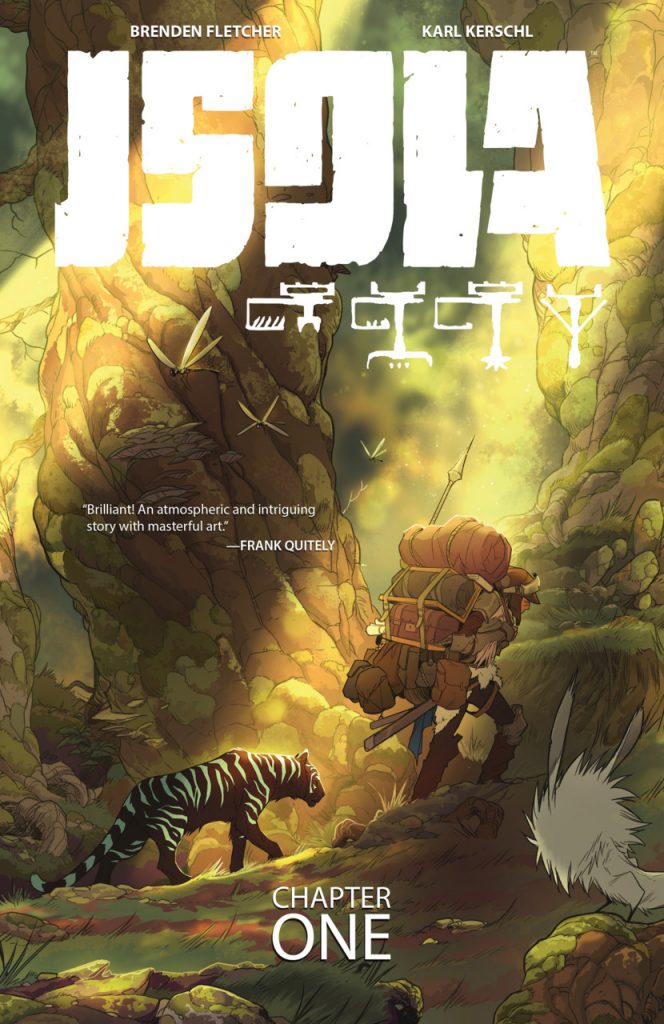Review by Frank Plowright
Since 2010 or so Image Comics have either spotted a gap in the market and exploited it extremely efficiently, or they’ve connected with a number of creators who’ve always wanted to work on their own fantasy series. Maybe the Lord of the Rings films have inspired as Star Wars did in the late 1970s. Whatever the truth, Isola is a prime addition to an already notable selection.
Brenden Fletcher and Karl Kerschl worked together successfully on Gotham Academy, but this is a more complete collaboration, both contributing to the world building and the plot, which Kerschl then draws and Fletcher scripts. Isola begins with a brown and turquoise striped tiger being led through remote countryside by a one time member of the Queen’s Guard, Rook. We learn early that the tiger is actually the Queen, somehow transformed, the how revealed later, although exactly why that happened is kept for another volume. She can communicate, but not in any language Rook understands. What Rook understands is a duty to keep her Queen safe in dangerous territory, as they can’t return to her kingdom as she’d be slaughtered on sight in her new form.
While the quest is almost compulsory for any fantasy series, the leisurely way that Fletcher and Kerschl roll their story out has more in common with European series than many of their Image contemporaries. It’s a feeling heightened by Kerschl’s figurative delicacy, strong storytelling and instinctively interesting page layouts. It’s wonderful, humane artwork, Kerschl’s best to date, and the spiritual atmosphere is only heightened by Msassyk’s colouring, she being another Gotham Academy graduate.
It’s gradually revealed that the Queen’s disappearance places the kingdoms of Maar, which she once ruled, and Palagrine Rock on an almost inevitable path to war, the latter blamed for the Queen’s absence. There’s another community, though, a mystical place in the swamps called Moro, also of relevance. And Isola? What’s Isola? We don’t learn the specifics. It’s a destination, one mentioned in song, and apparently one where the recently deceased are contactable. Fletcher and Kerschl are playing a long game, and Chapter One is effective in building a world while supplying some basic information about it and ensuring any reader will be back for Chapter Two.





